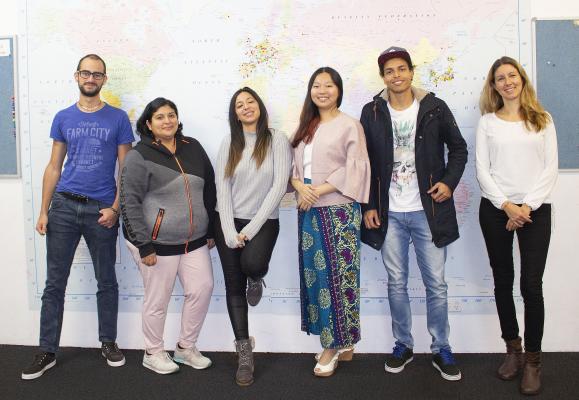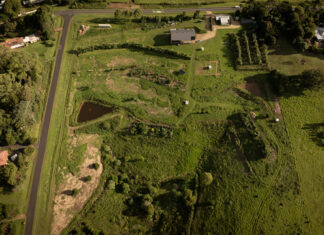The Noosa Lexis English language school has dropped its campus enrolment from 300 international students to less than 30 since Covid-19 restrictions were imposed in March and the effects have been widespread.
Students aged mostly in their mid-20s used to arrive weekly from across the work particularly Switzerland and Japan. They invested in the area, buying meals, taking trips and staying in rented accommodation or with 400 host families across the region.
When Covid-19 restrictions were imposed the school was forced to close its doors and go online.
Lexis English Noosa manager Becky Cantor said the school had a week to transfer all their face-to-face courses online.
“We managed it,” she said. “It was incredible.”
Most students returned to their homes and continued their studies online but some stayed and have recently resumed classes.
Spanish student Karina lost her job in a Hastings Street restaurant when it closed and has only recently returned to a few hours work a week.
“I wasn’t able to find another job. I work in hospitality. It’s so difficult,” she said.
Brazilian student Daniel arrived in Noosa five months ago and has lived on savings, unable to find a job. He is “really worried” about his mother, 63, and his 92-year-old-grandmother in Brazil where the Covid-situation is “not good”. “Every day I message them,” he said. “At the beginning my mum was concerned if I was wearing a mask and washing my hands but I said the situation here is under control. Daniel hopes to travel around Queensland but thinks the risk of visiting other states is too great.
Lithuanian student Zuzana arrived in Noosa in March on a visitor visa with plans to obtain a student visa to enable her to study and work part-time. “I had no job and the school was closed. I couldn’t work without a student visa” she said. “It’s gotten better now. The school is open again and there are job possibilities.” With limited choices it is difficult for her to decide her next move. “The difficulty is the borders are closed,” she said. “It’s difficult to make the decision to go home because you would not be able to come back.”
Spanish student Ana travelled to Brisbane from Melbourne just before borders were shut. Not able to find a job she began making Spanish food and delivering it to people in her area. She wants to travel around Australia with her best friend who is now in lockdown in Melbourne but that is not possible.
Noosa Lexis normally attracts a range of students, Ms Cantor said.
Some are long-term students on student visas who come to learn English before moving on to further studies at TAFE or university. Some are on working holidays. The largest group are Swiss who are attracted to Lexis English because of its Cambridge English exam centre certification.
The school also attracts Japanese junior study groups from high schools.
And at this time of year European teenage study groups on their summer school break visit Noosa to learn English in the mornings and enjoy activities in the afternoons.
Ms Cantor said she missed the students and the vibrancy they brought to the area.The school is still conducting zoom classes to international students including an entire Japanese soccer team that is training for the Olympics.
In addition to English classes the school has expanded its scope to offer small business courses which are proving popular in Noosa.
“It’s phenomenally challenging,” Lexis English director Ian Pratt said. “We’re an industry based on bringing people to Australia. We have schools in the cities and beach-based campuses like Noosa.
Mr Pratt praised the response of the Noosa Junction community to assist Lexis English students during the Covid-crisis. “It was unbelievably generous,” he said.
“They made a commitment no student was going to go hungry.
“These are people with no relationship with the school but they were going to look after these kids.”
Noosa Junction Association president Michael Tozer arranged for restaurants to offer free meals and a lot of local people offered accommodation to students, he said.
The school continues to do everything it can to keep its teachers engaged. Jobkeeper had been fundamental to keeping jobs, Mr Pratt said.
“We have people who have been there for a decade,” he said. “There’s a real family feel to the school in Noosa.”
With classes resuming the school now has 27 students attending classes in reduced numbers to ensure they meet Covid-19 restrictions, Ms Cantor said.
The students continue to be assisted with weekly food parcels of frozen meals, fresh fruit and vegetables and snacks organised by Study Sunshine Coast, delivered by community group Urban Angels with the assistance of government funding.
With their current plans disrupted by Covid-19 the students are uncertain what the future will hold.








